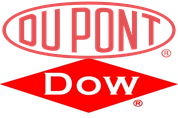 An article in this week’s Economist considers the proposed merger of two chemicals giants, Dow Chemical and DuPont.
An article in this week’s Economist considers the proposed merger of two chemicals giants, Dow Chemical and DuPont.
The rationale for the merger is cost cutting through economies of scale resulting from the merger. However, the article points out that these may not appear in the bottom line as competitor businesses are also cutting costs.
We often find that clients we work with are surprised to find that despite significant cost savings, profitability appears difficult to grow. However, this is almost always the case. As one business becomes more efficient, competitors do the same. The main beneficiaries of this are often customers who enjoy lower prices.
The article suggest that the best way for companies in the chemical industry to boost margins is to focus on higher tech niches where there is less competition, quoting AkzoNobel, a client of MTP.
However moving to the parts of the industry where margins are higher can be a precarious strategy as two of MTP’s clients have found over the years. In both cases we were working with these companies as these strategies developed and were implemented, sadly with a negative impact on business performance.
 In the case of BP Chemical’s in the late 1980s, they correctly identified that margins were higher in the specialty end of the industry and decided to focus their attention here. This strategy did not have great results, partly because competitors in these areas were more agile and partly because the chemicals business was not able to compete for capital investment or management attention at a time when BP’s overall performance was weak. Naturally, top management concentrated on the larger upstream part of the business.
In the case of BP Chemical’s in the late 1980s, they correctly identified that margins were higher in the specialty end of the industry and decided to focus their attention here. This strategy did not have great results, partly because competitors in these areas were more agile and partly because the chemicals business was not able to compete for capital investment or management attention at a time when BP’s overall performance was weak. Naturally, top management concentrated on the larger upstream part of the business.  In the case of ICI the result of a strategy of moving upmarket proved more devastating resulting in the end of the company. Charles Miller Smith left Unilever to be the first outsider to be appointed chief executive of ICI in1995. He formulated a strategy of moving the company into higher value adding (and higher margin businesses). To achieve this he bought the chemicals businesses that were owned by Unilever, who had announced their intention to sell them to focus on consumer goods.
In the case of ICI the result of a strategy of moving upmarket proved more devastating resulting in the end of the company. Charles Miller Smith left Unilever to be the first outsider to be appointed chief executive of ICI in1995. He formulated a strategy of moving the company into higher value adding (and higher margin businesses). To achieve this he bought the chemicals businesses that were owned by Unilever, who had announced their intention to sell them to focus on consumer goods.
It is now generally recognised that ICI overpaid and this resulted in the necessary sale of a number of businesses to provide enough cash flow to avoid insolvency. Eventually the remaining businesses were taken over by a combination of AkzoNobel and Henkel in 2008.
So we can see that success in an industry requires much more thought than identifying the areas that deliver high margins and moving there. It is also critical to be able to create and sustain a competitive advantage where you decide to compete.

No comments:
Post a Comment